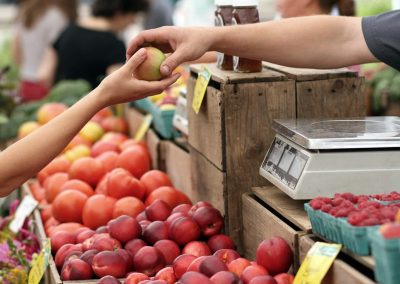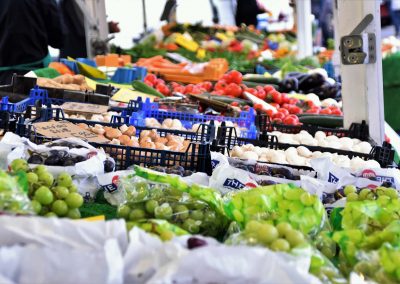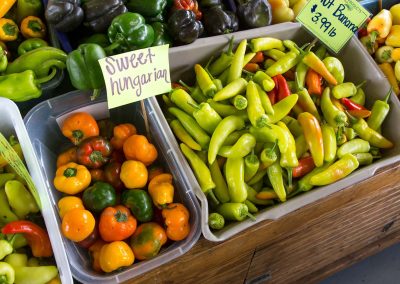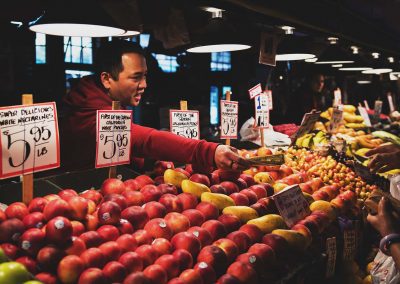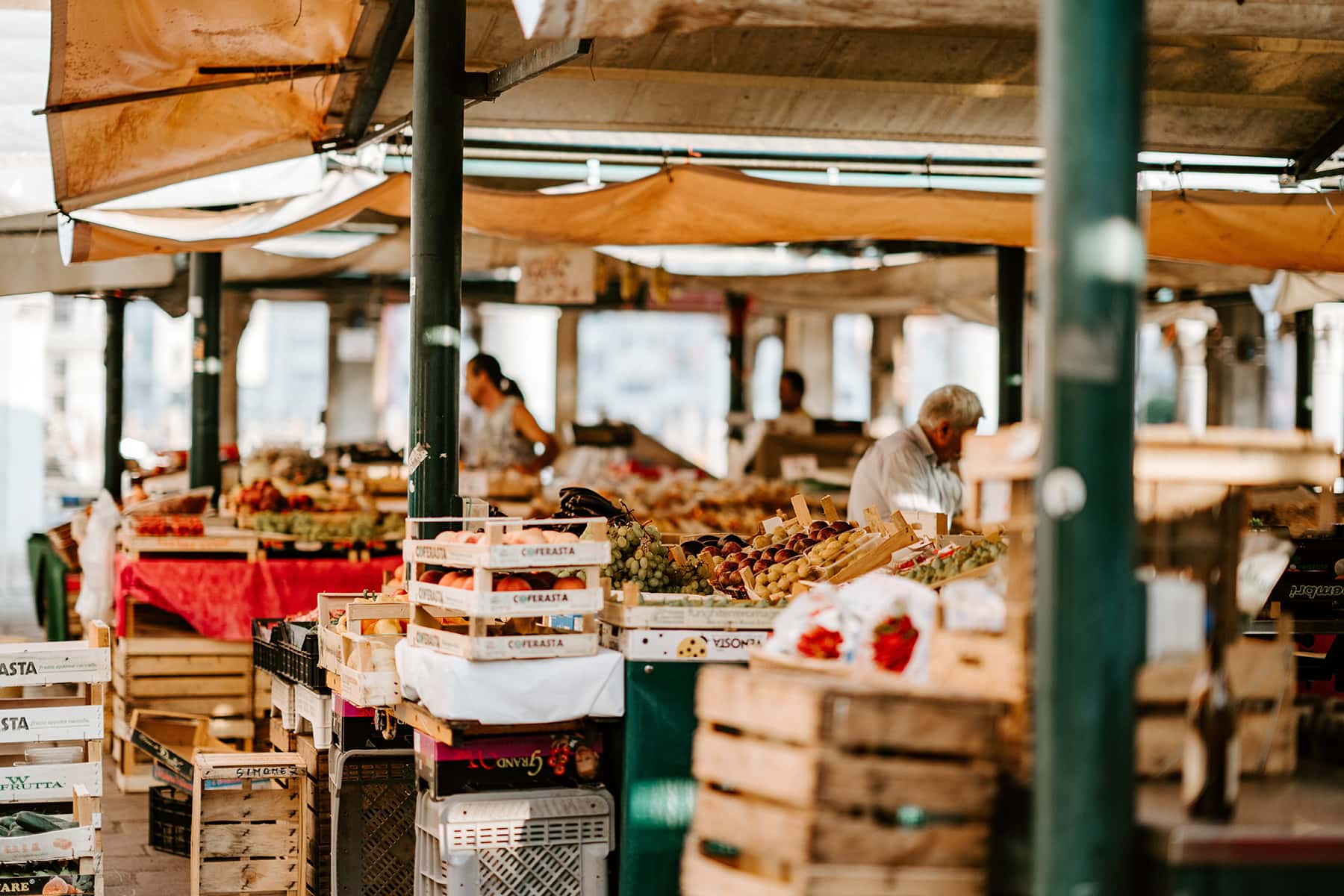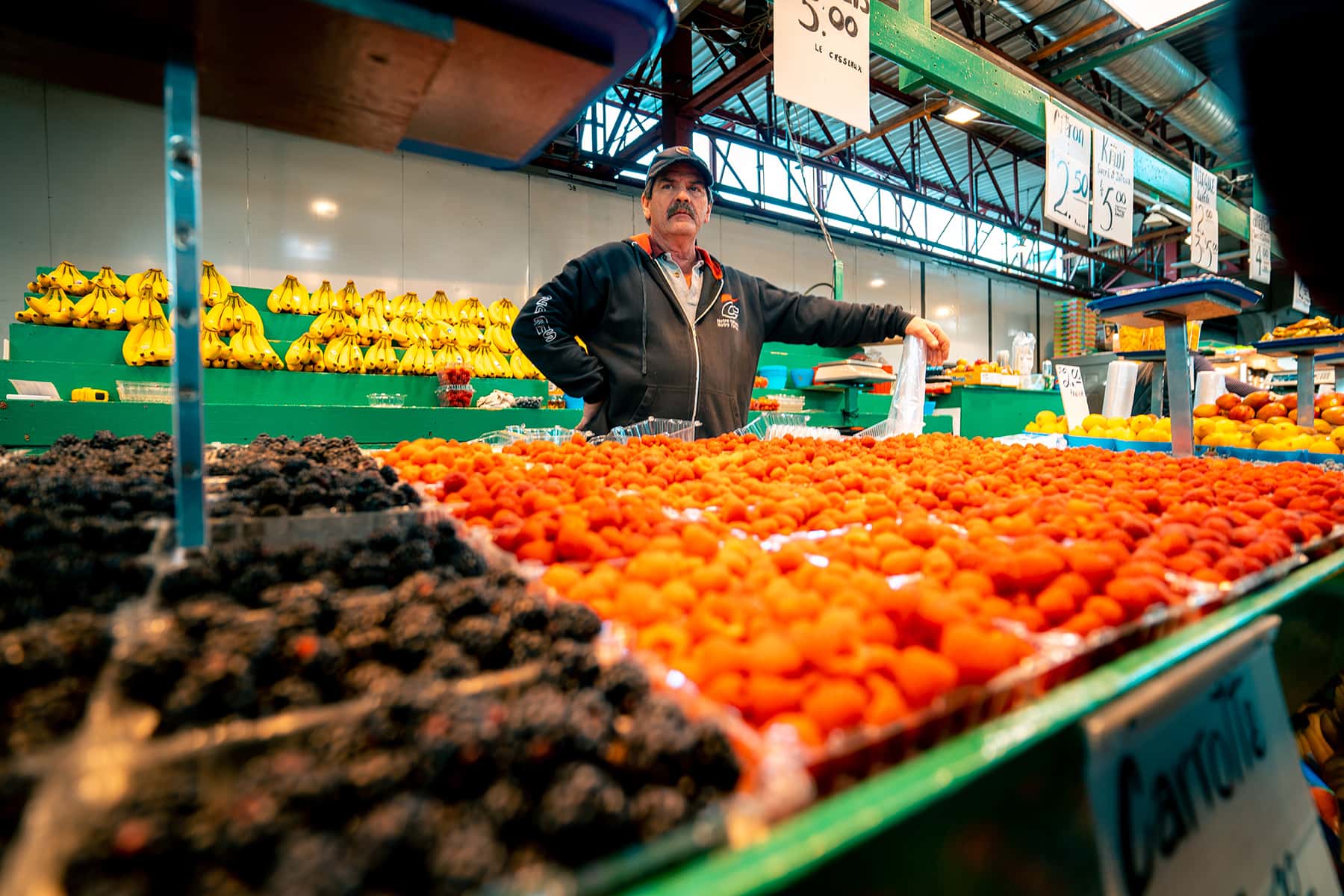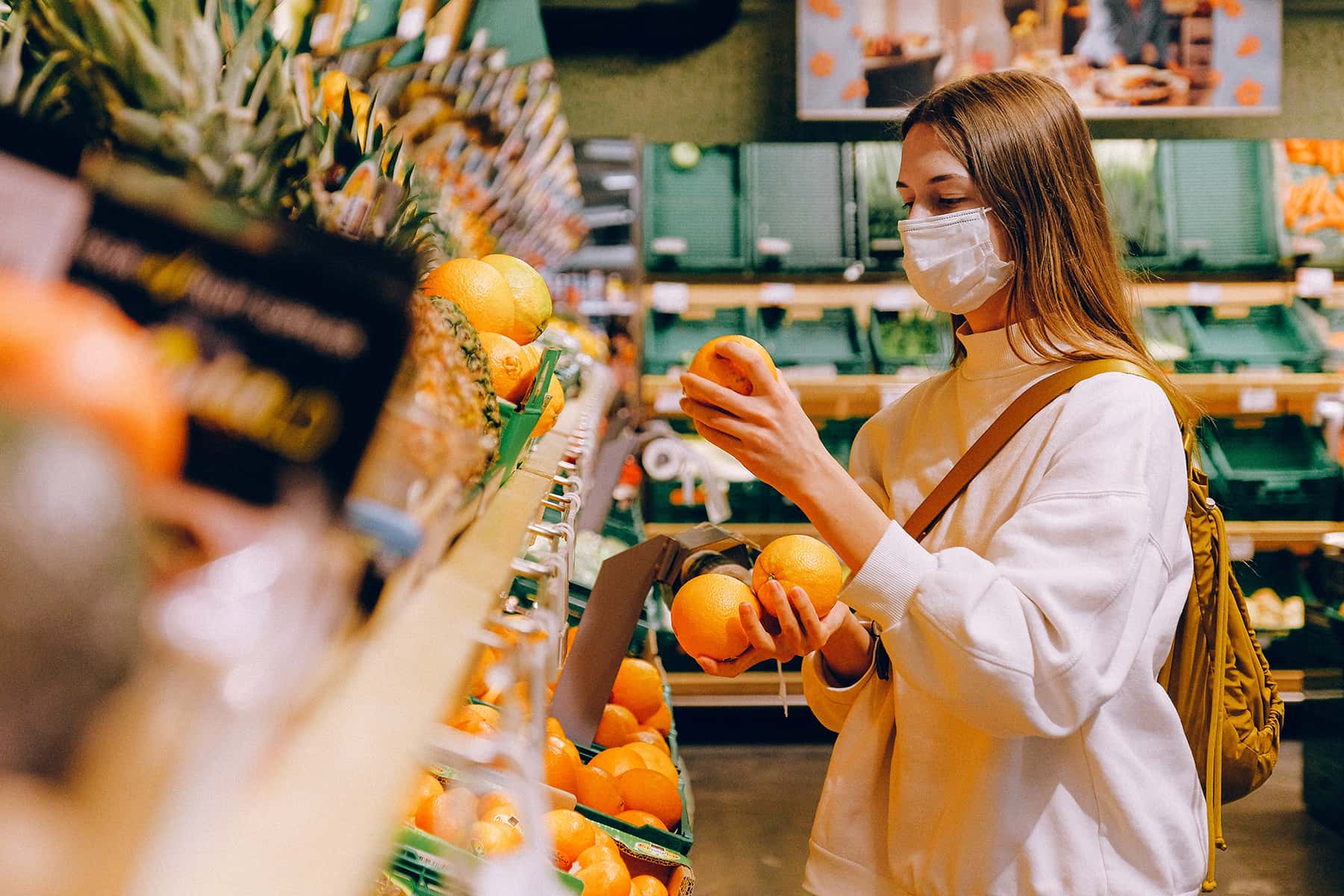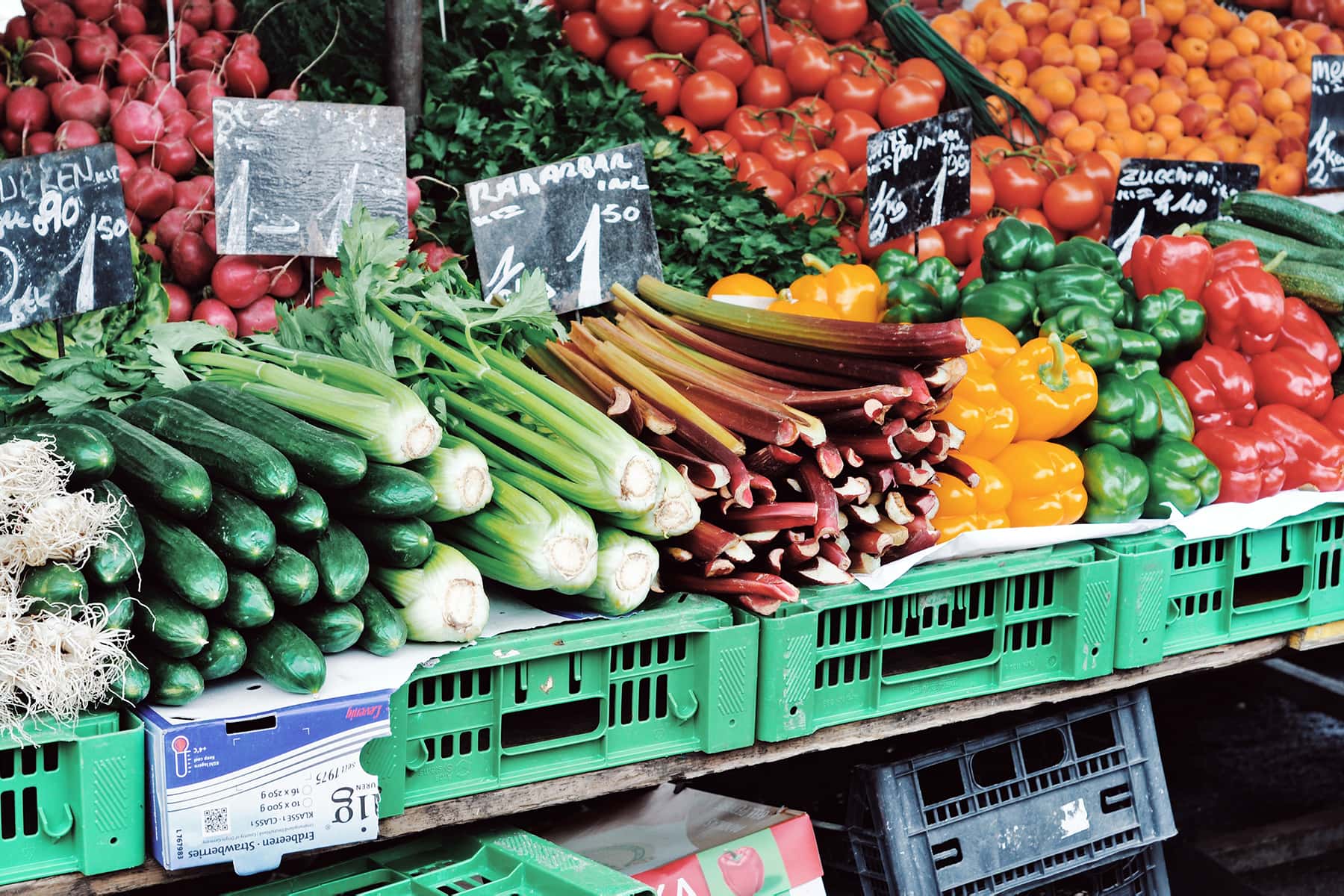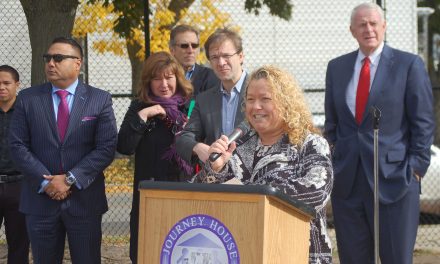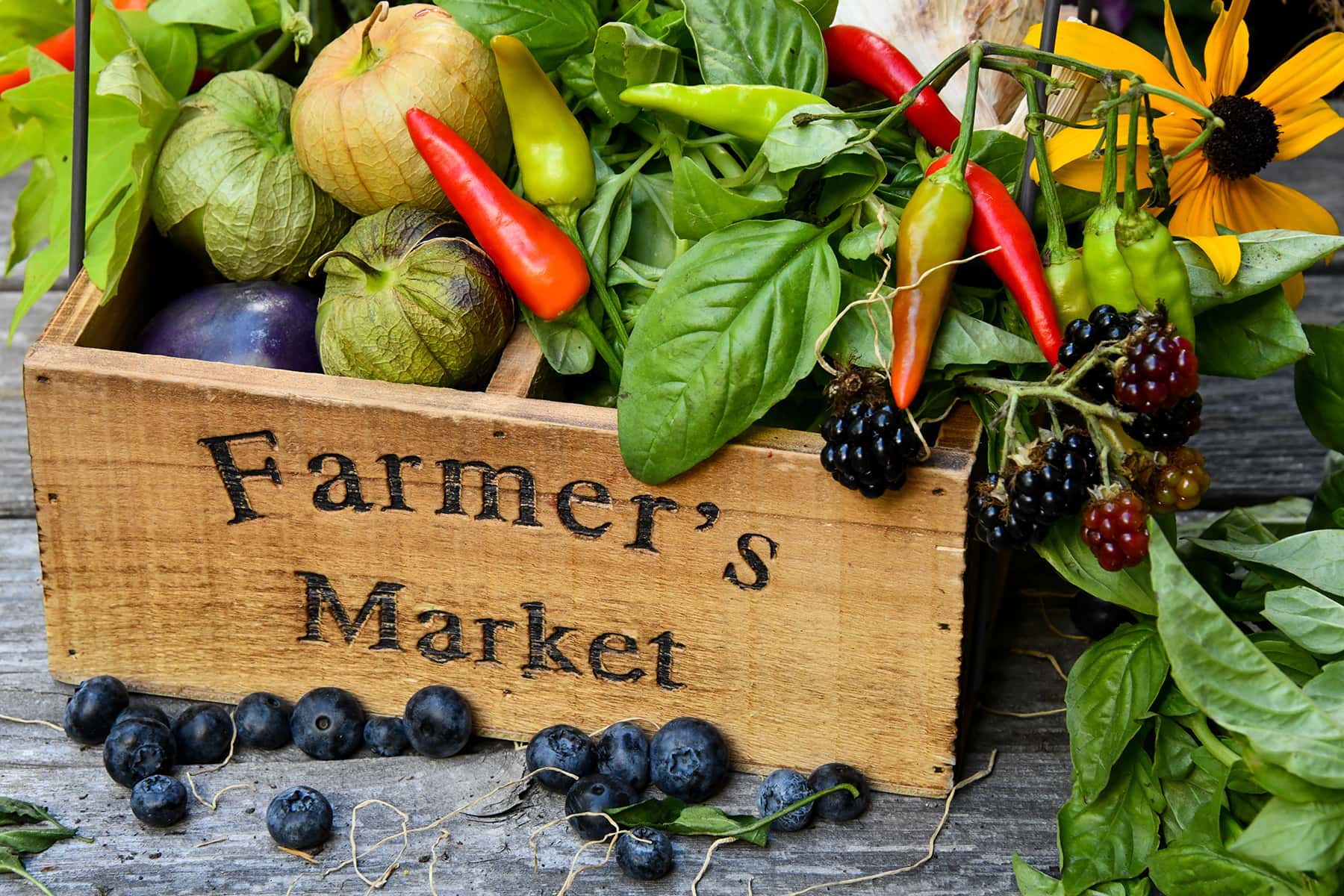
Farmers Market vendors in Wisconsin are reporting a 25 percent decline in sales due to the coronavirus pandemic, which has caused shortages and other problems across the food industry from restaurants and grocery stores to meatpacking plants.
At the Farmers Market in Cameron Park, Bao Xiong and her mother Kia Lee have tables full of fresh tomatoes, baby bok choy and other produce at their booth.
“We used to have about 64 to 70 items. During high season, yes, we do have 70 items. But this year we probably have about half of that,” Xiong said.
Xiong said her family decided to downsize their garden at the start of the season because of the uncertainty around how COVID-19 would impact farmers markets. Now, weeks away from the end of the season, she said sales have been down around 30 percent from previous years.
“The first two weeks, we had probably like 10 customers each week. The traffic was really, really light, and then it took about a month and a half for people to start realizing that the market is open,” Xiong said.
Producers who rely on farmers markets or other local sales have also felt the effects of the pandemic, as residents across Wisconsin have changed the way they purchase food this year.
Kristin Krokowski is the director of the Wisconsin Farmers Market Association. She said markets across the state have had to make changes to way they operate, just like grocery stores. Especially in urban areas, markets have tended to have more people with less ability to spread out.
“At a normal market, you would have four people in an 8-foot area picking through the sweet corn. And that’s not something that’s really practical anymore because you need to have the social distancing,” Krokowski said. “That kind of slows things down. Some customers get frustrated by that. They don’t want to have to wait. They want to kind of come and get their stuff and go.”
Krokowski said sales are down for most vendors in the state, but not what she would describe as “catastrophically”. She said how producers fare largely depends on how profitable they were before COVID-19.
“People will get through this year and hopefully not take any kind of huge loss or not lose their business. But it’s not going to be necessarily a very good year for most of the folks that we work with,” Krokowski said.
Bao Xiong said her family is still figuring out how this season will affect their ability to plant next year. She said most of the farmers at the market are in a similar situation.
“Honestly, I think we might see probably a decline in… vendors next year. I’m not certain about that, but that has been the sign. And probably less produce as well, in quantity and in variety,” Xiong said.
She said her family planted fewer varieties of vegetables this year and stopped growing specialty crops like ginger, opting instead for things they know will sell easily.
Hope Kirwan
Shеllеy Pаuls and Lee Matz
Originally published on Wisconsin Public Radio as As COVID-19 Changes Food Sales, Local Food Producers Work To Keep Up With Changing Demand

